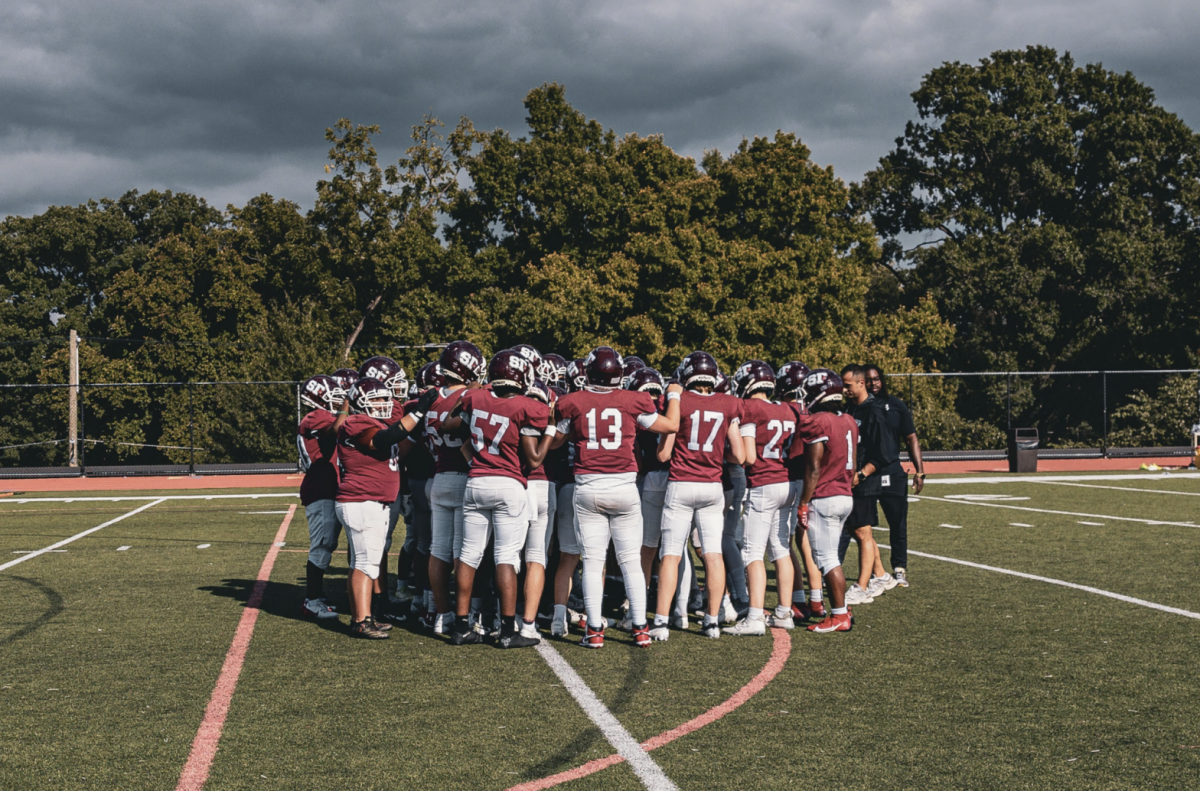Despite record viewership numbers, the 2024 Paris Summer Olympics faced several controversies before the opening event took place. From concerns over pollution in the Seine River to allegations of horse abuse in dressage, as well as a scandal involving the Canadian women’s soccer team, the build-up to these Games has been anything but smooth. One of the most heated debates surrounding the Paris Olympics has been the decision to host long-distance open-course swimming events — including the swimming marathon, the 10 kilometers swimming race and part of the triathlon — in the Seine River.
The Seine, a historic and iconic waterway that flows through Paris, stretches almost 500 miles from northern France through Paris and into the English Channel. The river has been infamous for its pollution, and swimming in the river has been banned since 1923.
Paris, like most other cities, has a combined sewer system, meaning that both wastewater and stormwater flow through the same pipes. When these pipes overflow, they are disposed of into the Seine. Throughout the years, this water system has led to the Seine’s infamous bad smell and toxic water.
Despite a $1.5 billion effort by the French government to clean the Seine, many Parisians were skeptical about the water quality. Paris Mayor Anne Hidalgo promised to prove the Seine’s safety by diving into it on June 23. However, her failure to follow through on that date, citing snap elections, only intensified public unrest.
Instead of providing the locals with security, her promise further upset them. A website was created that promoted defecation in the Seine and calculated the locations of defecation that would most interfere with Hidalgo’s dive.
“The problem is that all the resources that have been invested [$1.5 billion to clean up the Seine] have not been to resolve all the social problems we have at the moment,” said the website’s anonymous programmer to news outlet Actu Paris.
Eventually, Hidalgo fulfilled her promise on July 17, but by then, jokes and protests about polluting the Seine had already gone viral online. Despite these tensions, five swimming events took place in the river during the Games.
Concerns over the cleanliness of the Seine continued during the Olympics as Olympic triathlon swimmers from Belgium and Switzerland did not participate in the Mixed Triathlon relay as a result of illness. Both Athletes had competed in their respective gender’s triathlons that included swimming in the Seine. Additionally, a practice session in the Seine for the 10k marathon swim was canceled due to poor water quality concerns.
Allegations of horse abuse in dressage began last year when Danish horse dealer and dressage rider Andreas Helgstrand was exposed for abusive horse training. Later that year, videos of Ceaser Parra, a former American Olympian, whipping horses during training were leaked. After these two incidents, more people began investigating the ethics of horse dressage.
This year at the beginning of the Paris Olympics, British three-time gold medalist Charlotte Dujardin was exposed for horse abuse by one of her former students. Dujardin responded by withdrawing from the 2024 Olympics.
“What happened was completely out of character and does not reflect how I train my horses or coach my pupils,” she said.
Durjardin’s scandal prompted conservations about dressage and other equestrian sports. Days before Durjardin’s allegations became public, the International Federation for Equestrian Sports (FEI) launched their new “Be a Guardian” program in order to promote better treatment of horses.
“In the past we always spoke about partnership [between human and horse], but it’s not a partnership. In a partnership, you are both equal. But you should be the guardian of the horse; you’re not the partner,” FEI president Ingmar De Vos said.
Although the FEI is taking steps in the right direction, many people wonder if dressage’s sudden shift towards reform has come too late.
On July 22, the New Zealand Olympic Committee reported a drone flying over their women’s soccer team practice to the police. The police were able to track down the drone and discovered that its pilot was Joseph Lombardi, a soccer analyst with the Canadian team.
Lombardi, along with the assistant coach, Jasmine Mander, were immediately sent home.
The Canadian head coach, Bev Priestman, claimed that he had no previous knowledge of the drone. However, he still voluntarily withdrew from the Canadian match against New Zealand.
After a police investigation, Lombardi was given an eight month suspension from the league, and there was no evidence to prove that Mander knew about Lombardi’s drone before the report.
However, the issue was still far from solved — FIFA, the Canadian Olympic Committee and Canada Soccer are all conducting investigations and reviews of the scandal. Very shortly after the review began, it was announced that Priestman was also being sent home from the 2024 Olympics. Canada was also docked six points in their group stage tally.
Canada Soccer CEO Kevin Blue released a statement saying that they discovered previous incidents of drone use against opponents and therefore they decided to release Priestman.
The drone scandal was a big setback for the Canadian women’s soccer team, as they are the reigning gold medalists and it has left many players upset with the Canadian administration. However, three time Canadian Olympian Janine Beckie said that, what performance we put out there is the single thing that’s in our control and every single person in that locker room has done everything they can to give the best version of themselves to this team and across these three games we’ve seen every person step up. It’s incredible what this group continues to give each other.”











































